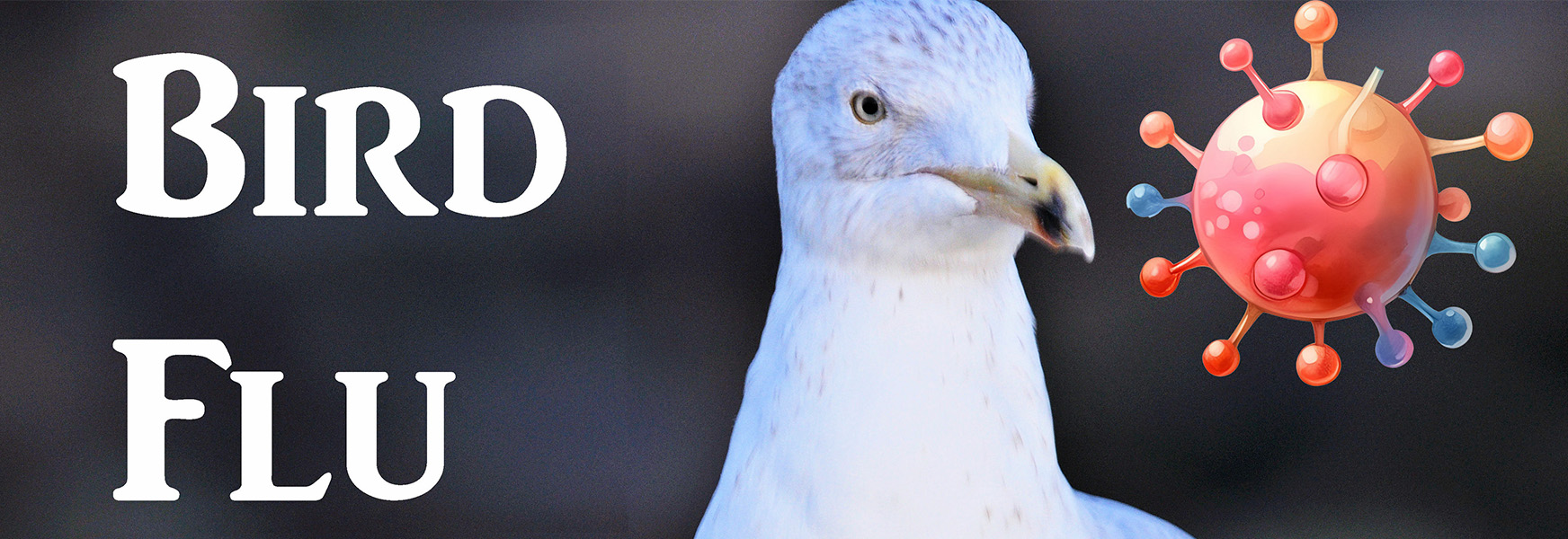Staying Safe from Bird Flu: Tips for Outdoor Work and Recreation

As outdoor activities ramp up, it’s important for outdoor enthusiasts and workers to stay aware of potential health risks, including avian influenza (bird flu). From campers to construction workers, water sports to dock workers, and bird watchers to agricultural workers, people of all ages should be informed of the risks. While the risk of transmission to humans is low, understanding how to prevent exposure is key to a safe workplace and an enjoyable time in nature.
Understanding Bird Flu Exposure
Bird flu is caused by the H5N1 influenza virus that primarily infects domestic poultry and wild birds, especially waterfowl like ducks and geese. These birds can shed the virus in their saliva, nasal secretions, and feces. Predatory animals such as cats, foxes and bears as well as predatory and scavenger birds such as eagles, hawks, vultures, and a variety of sea birds can be infected usually by ingesting infected waterfowl. Humans can become exposed through direct contact with infected birds, their droppings, or contaminated environments, such as campsites, trails, bird nests, or water sources.
Tips to Prevent Bird Flu Exposure
- Avoid Contact with Wild Birds: Do not touch, feed, or handle wild birds, especially those that appear sick or are acting abnormally.
- Observe from a Distance: Enjoy birdwatching with binoculars or cameras, but maintain a safe distance from birds and their nesting areas
- Wash Hands Frequently: Use soap and water or hand sanitizer after outdoor activities, especially before eating or drinking.
- Keep Campsites and Worksites Clean: Dispose of food scraps and trash properly to avoid attracting birds.
- Stay Clear of Bird Droppings: Do not touch or step on bird droppings. If you accidentally come into contact, wash the area thoroughly.
- Supervise Young Campers: Teach younger children not to pick up feathers, touch dead birds, or play in areas frequented by birds.
- Protect Pets: Keep pets on leashes and away from birds or bird carcasses.
- Use Proper Gear: Wear gloves if you need to handle objects that might have been contaminated by birds.
- Consult Authorities: If potentially infected bird species are present or nesting in your work area, keep your distance and do not touch nesting material. If you must remove birds or nests to complete your job, consult your local game warden or wildlife service for instructions or assistance.
What to Do If You Find a Sick or Dead Bird
If you encounter a bird that appears ill (e.g., trembling, unable to fly, acting disoriented) or find a dead bird:
- Do Not Touch It: Avoid direct contact. Keep children and pets away from the bird.
- Report the Sighting: Contact your local wildlife authority or health department to report the sick or dead bird. They can provide guidance on proper handling and disposal.
- Wash Thoroughly: If accidental contact occurs, wash your hands and any exposed skin with soap and water immediately.
When to Seek Medical Advice
If you develop flu-like symptoms (fever, cough, sore throat) after possible exposure to birds, contact a healthcare provider and inform them of your recent outdoor activities and suspected exposure. Policyholders who are exposed on the jobsite can utilize MEMIC's First Call Nurse Triage Program for immediate guidance. MEMIC offers a 24-hour Nurse Triage program to assist in evaluating your symptoms and determining the next steps. Prompt reporting and consultation can ensure you receive the appropriate care and support.
Final Thoughts
Bird flu doesn’t have to put a damper on your outdoor work and adventures. With a few simple precautions, you can explore the great outdoors safely while minimizing health risks.
Stay safe, and happy exploring!
References:
- Centers for Disease Control and Prevention (CDC). (2023). Avian Influenza (Bird Flu). Retrieved from https://www.cdc.gov/flu/avianflu/
- U.S. Fish and Wildlife Service. (2023). Guidelines for Handling Sick or Dead Wild Birds. Retrieved from https://www.fws.gov

